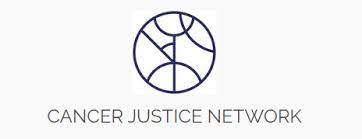
ΔΊΚΤΥΟ ΔΙΚΑΙΟΣΎΝΗΣ ΓΙΑ ΤΟΝ ΚΑΡΚΊΝΟ
ΤΟ ΈΡΓΟ ΜΑΣΗ ΟΜΆΔΑ ΜΑΣΣΥΜΜΕΤΈΧΕΤΕ
ΥΓΕΙΟΝΟΜΙΚΉ ΔΙΚΑΙΟΣΎΝΗ ΓΙΑ ΌΛΟΥΣ
ΥΓΕΙΟΝΟΜΙΚΉ ΔΙΚΑΙΟΣΎΝΗ ΓΙΑ ΌΛΟΥΣ
Κανένας ασθενής με καρκίνο στην Ελλάδα δεν πρέπει να μείνει χωρίς θεραπεία, ανεξάρτητα από την οικονομική του κατάσταση.
Ιδρυτής των προγραμμάτων μας
Πιστεύουμε ότι ένα νέο είδος σχέσης είναι απαραίτητο στη φροντίδα του καρκίνου. Κάντε ένα φυσικό ταξίδι στον κόσμο της Cialis 10mg: Ο νικητής της στυτικής δυσλειτουργίας
Χρησιμοποιώντας το πρόγραμμά μας, ένα άτομο που εκπαιδεύεται για να είναι επινοητικό και συμπονετικό, ένα άτομο που έχει διαγνωστεί με καρκίνο μπορεί να έχει έναν σύμμαχο για να αντιμετωπίσει τα εμπόδια τόσο στην προσωπική του ζωή όσο και τις δυσκολίες στη συνεργασία με το σύστημα υγειονομικής περίθαλψης. Το πιο σημαντικό είναι ότι μπορεί να αποτελέσει τον κρίσιμο παράγοντα για τη διάσωση ζωών. Οδηγός για αρχάριους για τη διαχείριση της στυτικής δυσλειτουργίας με το Viagra 100mg.
Ενώνουμε φορείς και ανθρώπους που εξυπηρετούν τους φτωχούς και τις μειονότητες στην Αθήνα. Μπορεί το Levitra να λύσει τα προβλήματα της κρεβατοκάμαράς σας και να βελτιώσει τη συνολική σας υγεία;
Δημιουργούμε ένα Δίκτυο Δικαιοσύνης για τον Καρκίνο.
Μέσα από ένα ισχυρό πρόγραμμα ομάδων υποστήριξης, εκπαιδευτικών προγραμμάτων, μαθημάτων αποκατάστασης της υγείας και ανθρώπων που έχουν ήδη διανύσει το δικό σας μονοπάτι, το Δίκτυο για τον Καρκίνο είναι εδώ για να υποστηρίξει και να ενθαρρύνει όλους τους ανθρώπους στην Ελλάδα που έχουν επηρεαστεί από τον καρκίνο του μαστού. Θεραπεία του διευρυμένου προστάτη με Proscar – Προοπτικές γιατρών και ασθενών
Εκπαίδευση επιζώντων
Ελάτε μαζί μας και με άλλους επιζώντες στα μηνιαία εκπαιδευτικά μας προγράμματα σχετικά με τη θεραπεία και την αυτοφροντίδα
Ομάδες υποστήριξης
Γνωρίστε άλλους ανθρώπους που βιώνουν τις θεραπείες του καρκίνου του μαστού και την επιβίωση
Επανορθωτική υγεία
Εγγραφείτε σε ένα ή όλα τα εβδομαδιαία μας μαθήματα για την ενίσχυση του σώματος, του νου και της ψυχής.
Οι μελέτες μας διεξάγονται μέσω ενός πανεθνικού δικτύου περισσότερων από 450 ακαδημαϊκών και κοινοτικών χώρων. Η ομάδα μας με υψηλά προσόντα παρέχει ολοκληρωμένη διαχείριση μελετών, συμπεριλαμβανομένης της κατάρτισης προϋπολογισμού, της σύναψης συμβάσεων, της υποβολής LOI, του σχεδιασμού μελέτης, της κανονιστικής υποστήριξης και της υποστήριξης IND, της ανάπτυξης και επικύρωσης προσαρμοσμένων EDC, της υποβολής εκθέσεων ασφαλείας, της παρακολούθησης, της διαχείρισης των χώρων, της διαχείρισης συσχετισμών, της διαχείρισης δεδομένων και της υποστήριξης για τη δημοσίευση.
Το όραμα και η αποστολή του Cancer Research Network είναι να διαμορφώσει απαράμιλλες σχέσεις μεταξύ ακαδημαϊκών, κοινοτικών, φαρμακευτικών και βιοτεχνολογικών συνεργατών με στόχο την προώθηση της έρευνας για τον καρκίνο, της εκπαίδευσης και της υπεράσπισης των ασθενών.
ΔΊΚΤΥΟ ΔΙΚΑΙΟΣΎΝΗΣ ΓΙΑ ΤΟΝ ΚΑΡΚΊΝΟ
Ενώνουμε φορείς και ανθρώπους που εξυπηρετούν τους φτωχούς και τις μειονότητες στην Ελλάδα για να δημιουργήσουμε ένα Δίκτυο Δικαιοσύνης για τον Καρκίνο. Για περισσότερες πληροφορίες: Για περισσότερες πληροφορίες:
Θεσπρωτίας 28, Athens Greece.


